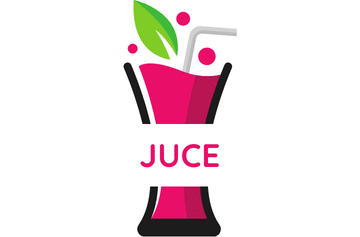Discover the benefits of using an abacus for all ages
The abacus, a timeless mathematical tool, offers remarkable benefits for learners of all ages. Its evolution from ancient origins to a modern educational asset underscores its importance in today’s classrooms. Using an abacus not only enhances mathematical skills but also boosts cognitive development, concentration, and even creativity. Discover how this simple device can transform learning experiences for everyone, fostering critical thinking and engaging minds across generations.
The role of Abacus in modern education
The abacus has journeyed from its origins as an ancient calculation tool to a modern educational powerhouse. Its transformation highlights its enduring relevance in teaching mathematics effectively. Originally developed in the 16th and 17th centuries, the abacus now serves as a dynamic instrument in contemporary classrooms, fostering a wide range of skills beyond basic arithmetic.
A lire en complément : How Can Customized 3D-Printed Orthotics Bring Comfort to UK Patients with Foot Conditions?
Today, the abacus plays a crucial role in enhancing cognitive development and analytical thinking. Children who engage with this tactile tool often experience improved memory retention and longer attention spans. The act of shifting colourful beads not only captivates young minds but also encourages a deeper understanding of mathematical concepts. This hands-on approach helps students apply learned formulas to real-world scenarios, promoting problem-solving abilities.
Moreover, the abacus supports the development of creativity and motor skills. As students manipulate beads, they engage in activities that bolster hand-eye coordination and physical movement, essential components of learning. This tool's interactive nature fosters a positive attitude towards education, making learning enjoyable and less stressful. By integrating the abacus into modern education, students are equipped with the skills to tackle complex problems, ensuring they are well-prepared for future academic challenges. For more insights into its benefits, learn more on this page.
A découvrir également : Découvrez les interviews et les actualités de dernière minute dans la rubrique « Insights ».
Cognitive and educational benefits of using an Abacus
Learning math with an abacus significantly boosts cognitive development. This ancient tool transforms abstract numbers into tangible forms, making complex calculations more accessible. As children engage with the abacus, they often see an improvement in memory retention. The repetitive motion of moving beads helps reinforce mathematical concepts, embedding them in long-term memory. This tactile interaction not only aids in understanding arithmetic operations but also enhances overall brain function, fostering a robust foundation for future learning.
Concentration and focus development
Practicing with an abacus enhances concentration and attention span. The need to focus on bead manipulation requires sustained mental effort, which translates into better concentration skills. This increased focus is not limited to mathematics; students can apply it to various learning tasks, improving their overall academic performance. By nurturing these skills early, the abacus helps students develop the discipline needed for more complex subjects.
Promoting creativity and problem-solving
The abacus is a powerful tool for fostering creativity in problem-solving. It encourages students to explore different methods to reach solutions, enhancing their analytical and critical thinking skills. Through regular use, learners become adept at approaching challenges from multiple angles, a skill that is invaluable in both academic and real-world contexts. This creative problem-solving ability is crucial for success in today's fast-paced world.
Engaging and practical applications of the Abacus
The abacus offers a unique tactile experience that transforms learning into an engaging activity. Children derive immense satisfaction from the physical act of moving beads, which aids in anchoring mathematical concepts in their minds. This hands-on approach caters to visual learners by providing a clear representation of numbers and operations, making abstract math concepts more accessible and understandable. The visual cues from the abacus not only enhance comprehension but also stimulate memory retention, allowing for a deeper grasp of arithmetic principles.
Abacus for different age groups
The versatility of the abacus makes it suitable for learners of all ages. For children, it serves as a foundational math learning tool, building essential skills in arithmetic and problem-solving. Adults and seniors can also benefit, using the abacus to maintain cognitive agility and sharpen mental math abilities. This adaptability ensures that the abacus remains relevant across various educational stages, offering a stimulating and rewarding learning experience for everyone involved.
Abacus in special and inclusive education
In special and inclusive education settings, the abacus proves invaluable. It caters to diverse learning needs by providing a structured yet flexible approach to math education. Through tactile interaction, students with special needs can develop fine motor skills and improve focus. The abacus encourages inclusive learning by allowing all students to engage with math in a way that suits their unique learning styles, promoting equality and accessibility in education.
